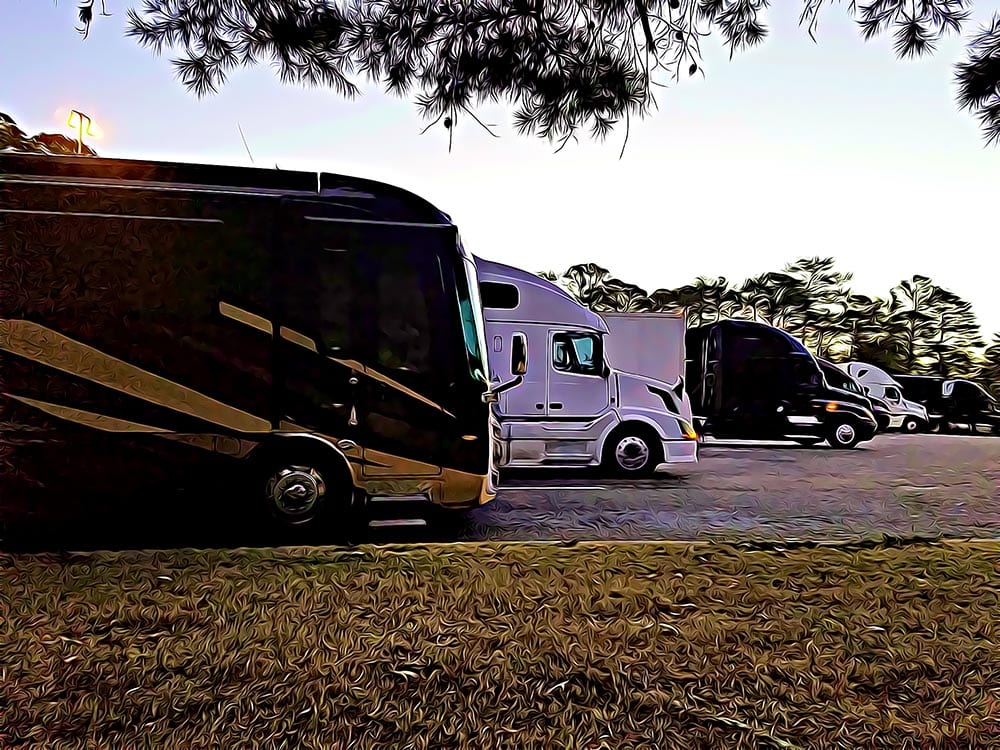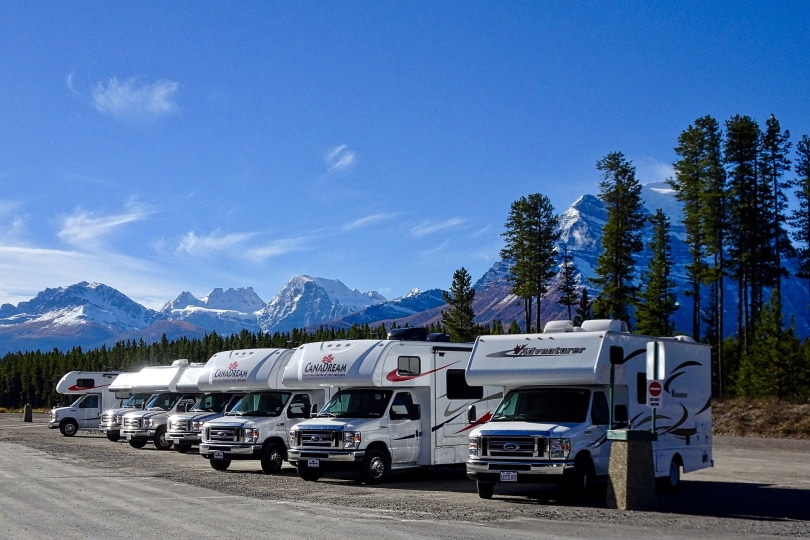Can RVs Park at Truck Stops? Etiquette, Alternatives & FAQ
-
Shea Cummings
- Last updated:

There’s nothing quite like hitting the road in the RV and heading out on a long overdue vacation. Until you arrive at your destination, though, it’s sometimes tough to find a place to sleep when the night rolls around.
Truck stops are spread across the country. It’s easy enough to pull into a spot there and catch some z’s, right? Technically you can, and many truck stops have signs indicating that overnight parking in your RV is acceptable.
However, many truckers don’t feel the same acceptance that those signs show—and for reasonable reasons. Below, we’ll discuss why RV parking at a truck stop is frowned upon and a couple of alternatives you could consider.

RVs are Technically Allowed to Park at Most Truck Stops
Just because something is allowed doesn’t necessarily mean that everyone is on board or accepts it. And when it comes to RVs parking at a truck stop overnight, there have been some pretty heated discussions over it.
To understand a trucker’s frustration, we should look at what’s on the line for them.
Rules and Regulations
Long haul truck drivers are heavily regulated. In some cases, more so than even doctors. One of the biggest regulations they must adhere to is only driving for certain lengths of time. For example, truck drivers can drive no more than 11 hours without a break in many states.
If they drive longer than this, they risk hefty fines, losing their job, and possibly being un-hireable by other companies.
In addition to having to make specific stops, they are also only allowed to park in certain places—at a designated truck stop, for example. So, if there’s no room for them to park when they get to the truck stop, it’s quite literally their job on the line.
Should You Park at the Truck Stop?
So, we understand why a trucker might be frustrated if RVs start filling up the truck stop, and it’s a reasonable frustration. But that doesn’t change the fact that it’s not technically illegal to use a truck stop in a pinch while traveling in your RV.
It boils down to being as respectful as possible to men and women responsible for making sure the stores we love to shop at remain stocked full of the stuff we love to buy. If you can avoid stopping overnight at a truck stop, that’s the best option. But if you need to make the stop in a pinch, you’re well within your rights (as long as it’s not prohibited at the particular truck stop).

If You Must Park at a Truck Stop
If you’re going to use a truck stop overnight, there are a few things to keep in mind as far as RV etiquette at a truck stop goes:
- Typically truckers will take the back spots. So, even if they’re available when you arrive, use a front one instead.
- If you’re using the facilities (showers or laundry), try and do so before the evening “trucker rush.”
- If there is a cab-only area at the truck stop, use that instead because it’s often in less demand.
- Don’t open your slide unless you must because it takes up extra room, and if a trucker pulls in really late when it’s dark, they may not see it properly. This could lead to a terrible accident.

Alternatives to Truck Stops
You have a few more options because there are no rules governing when an RVer must take a break or stop. Quite a few stores typically allow overnight camping for RVs or campers in their parking lots. Even a rest area pullout is a viable option in a pinch.
- Walmart
- Sam’s Club
- Bass Pro Shops and Cabela’s
- Home Depot and Lowe’s
- Cracker Barrel
None of these stores have corporate policies that state overnight parking is allowed. However, it’s quite commonly accepted at most stores at the manager’s discretion.

Closing Thoughts
There’s no need to stress about where you’ll stop for the night. The beauty of RV camping is that your “home” is literally on wheels. So, if you need to stop in a rest area pullout, a truck stop, or a Walmart parking lot, you can.
The only thing we can stress is if you’re sharing a truck stop, follow a few simple steps and adhere to proper etiquette. That way your family vacation is an enjoyable one, and the truck drivers keep their jobs.
Featured Image Credit: Jarama, Shutterstock
Contents
